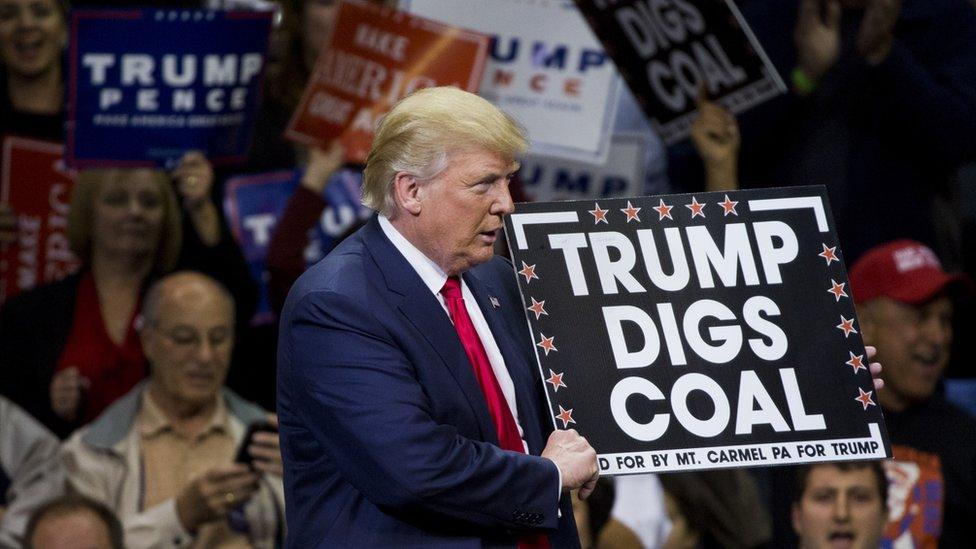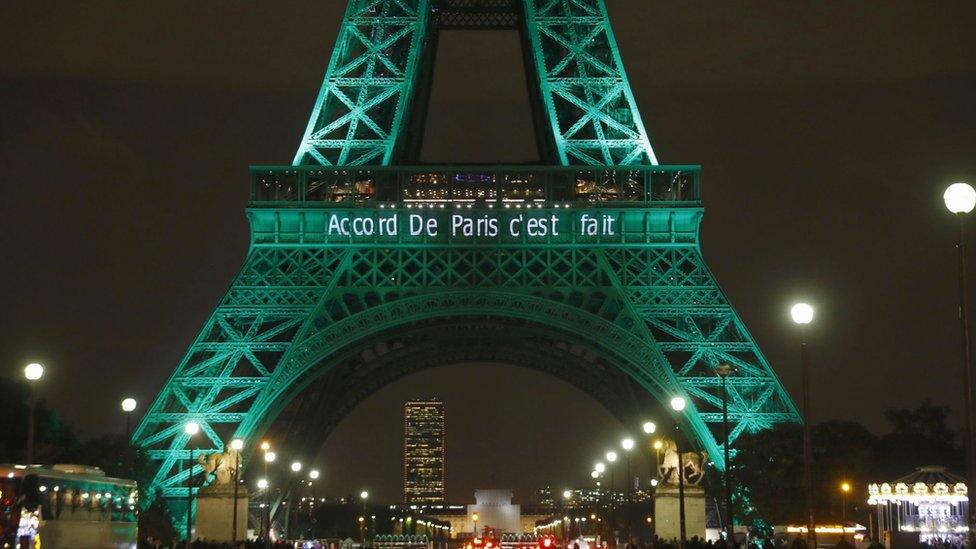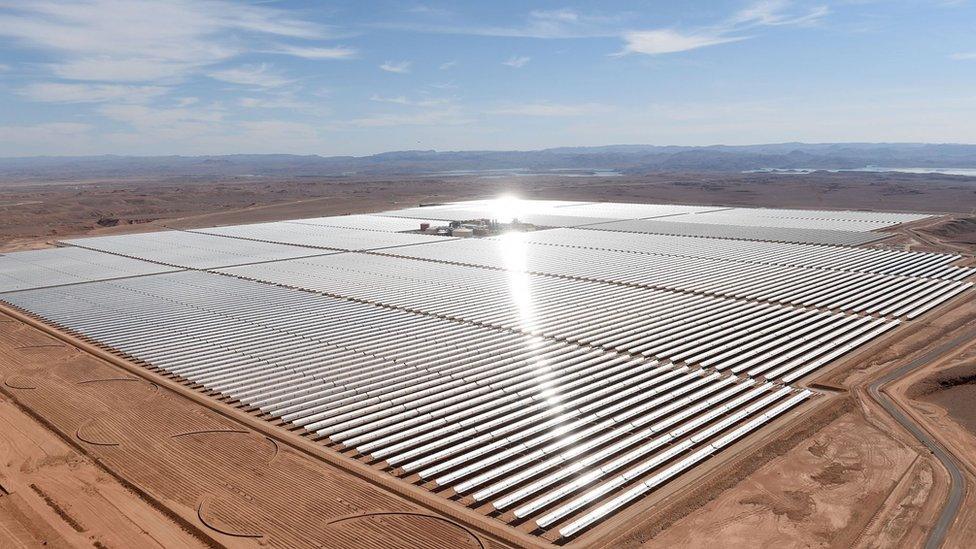Trump 'threat' to dominate UN climate negotiations
- Published

Donald Trump says climate change is a "hoax" and promised to revive the US coal industry
Concerns over a Trump presidency are set to dominate the early days of global climate talks in Morocco.
Some 20,000 participants are meeting in Marrakech for two weeks, starting on Monday, to agree new rules to limit warming on the planet.
These plans were boosted when the Paris Climate Agreement came into force last week.
However Mr Trump, who calls climate change a "hoax", has vowed to cancel the deal if elected.
New rules
Signed by 193 countries in the French capital last December, the Paris Agreement is now international law, having been ratified by at least 55 countries representing over 55% of global emissions.
The UN deal, hammered out after years of failed talks, aims to keep the rise in global temperatures under 2 degrees Celsius by the end of this century, and "will pursue efforts" to limit the rise to 1.5C.
When countries put forward their own plans, or intended nationally determined contributions (INDCS) on what they will do to cut emissions and transition to renewables, much of the detail about how to verify these plans was left vague.

The Eiffel Tower was bathed in green light to celebrate the coming into force of the Paris Climate Agreement
This will be one of the tasks that negotiators from all over the world will face in Marrakech at the Conference of the Parties (COP22) over the next two weeks.
But the early days of the talks will be dominated by the prospect of Donald Trump gaining the White House.
Earlier this year Mr Trump said he would "cancel" the Paris agreement if elected. The deal was "bad for US business" and would allow "foreign bureaucrats control over how much energy we use", he said.
Concern over the rise of Mr Trump helped galvanise the global push to bring the Paris agreement into force. Now that it is operational and binding on countries, taking the US out of the deal would not be easy.
"The Paris agreement prohibits any exit for a period of three years, plus a year-long notice period, so there will be four stable years," said Segolene Royal, the French environment minister who played a role in negotiating the treaty.
While Mr Trump would not be able to withdraw easily from Paris, his scepticism about climate science and his determination to revive the coal industry put him at odds with most international leaders.
"Electing a climate science conspiracy theorist like Trump would make America a global laughing stock and embarrassment, all the while relinquishing our leadership role in the world," said Khalid Potts from US environmental group, the Sierra Club.
"The ice caps don't negotiate, and neither do rising seas. Donald Trump's moral failure to acknowledge the climate crisis might very well mean planetary disaster if he is elected."
Greater ambition?
While negotiators await the outcome of the US election, there are several other factors that might also slow progress in these talks.
One key element that might hold things up is the fact that so far only 100 have ratified the Paris agreement. There is a concern that it would be unfair if these early adopters had the chance to set the future rules under which all countries would have to operate.
"The momentum of the entry into force will help to push for progress in discussing the overall implementation process," Dennis Taenzler from adelphi, external, a climate change think tank, told BBC News.
"There is some reason to expect that key decisions will be postponed until additional parties will have ratified as well."
Another big question for the Marrakech meeting is whether countries will see it as an opportunity to push for greater action and go further than they did in Paris.

The giant solar farm at Noor is part of Morocco's attempts to switch to renewables
In recent days, an analysis from the UN Environment Programme suggested that the national plans on the table will need to have their level of ambition increased by about 25% if the Paris targets are to be met.
There are some positive signs. Last month at a meeting in Rwanda, countries agreed to phase out the use of HFCs, gases with significant global warming potential.
International aviation has taken the first, limited steps to put in place a global limit on aircraft emissions. In recent days China has announced a plan to tighten the level of carbon emissions per unit of GDP.
"There are actually some remarkable things going on, even in North America, with Canada introducing a carbon tax. Canada, US and Mexico had a remarkable tri-party agreement on methane for example," said Andrew Steer from the World Resources Institute.
"You've got a surprising number of countries around the world that are putting in place carbon pricing - something like 40 countries have committed to do that. Already there are 200 million Chinese under a price on carbon, and by this time next year we hope there will be 1.1 billion Chinese under a price on carbon."
The Marrakech meeting will also see significant debate about the format for a future "global stock take" - a five yearly review of progress that countries have made against the targets that they have signed up to. It is a key part of the Paris agreement, designed to ratchet up ambition over time.
There will also be reviews on finance to see if richer countries have made progress on the promise to deliver $100bn in climate aid to developing nations by 2020.
One issue that could see sparks fly is the question of loss and damage. The question of compensation for the long term impacts of climate change is one of the most contentious as poor countries see it as a moral obligation of the rich, while the developed world is extremely wary of establishing a legal liability for the damage caused by their greenhouse gas emissions.
It has been lurking on the sidelines since it almost derailed the entire UN talks process back in 2013. It will be interesting to see if it causes similar rancour in Marrakech.
Follow Matt on Twitter, external and on Facebook, external